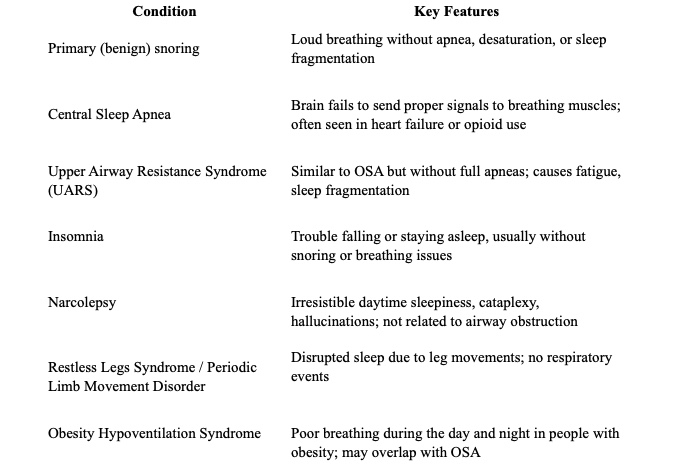Why Snoring Could Be More Serious Than You Think: Understanding Obstructive Sleep Apnea (OSA)
Chronic snoring may signal Obstructive Sleep Apnea (OSA). Recognizing symptoms of OSA like gasping, daytime fatigue, or memory issues and seeking timely diagnosis and treatment can significantly improve health and quality of life.

We’ve all heard it—or done it. That loud, rumbling snore echoing through the night might be the punchline of a joke, but for millions, it’s a sign of something much more serious: Obstructive Sleep Apnea, (OSA).
What Is Snoring, and When Is It a Problem?
Snoring happens when airflow is partially blocked in the upper airway during sleep, causing tissues in the throat to vibrate. Occasional snoring is often harmless, but chronic, loud snoring, especially with gasping, choking, or pauses in breathing, may signal OSA, a potentially serious sleep disorder where the airway repeatedly collapses during sleep, interrupting normal breathing.
Prevalence: A Widespread Yet Under-diagnosed Condition
An estimated 25 million adults in the U.S. are affected by OSA, and many remain undiagnosed. Prevalence increases with age, weight, and certain medical conditions. Studies suggest:
Risk Factors for OSA
Several traits and conditions increase the likelihood of developing OSA:
Symptoms: What to Look For
Often, it’s the bed partner—not the person with OSA—who first notices the symptoms.
The Dangers of Untreated OSA
OSA doesn’t just rob you of restful sleep—it can endanger your long-term health. Associated complications include:
The repeated drops in oxygen and sleep disruptions place a heavy toll on cardiovascular, metabolic, and brain health.
Diagnosis: How Is OSA Confirmed?
The first step is a clinical evaluation, often followed by a sleep study:
Results are classified using the Apnea-Hypopnea Index (AHI):
Differential Diagnosis: What Else Could It Be?
Not all snoring or sleepiness is due to OSA. Consider these other possibilities:

A sleep medicine specialist can help determine the correct diagnosis and guide proper treatment.
Who Should You See?
Primary care physician: For initial evaluation and referral
Sleep medicine specialist: For diagnosis and treatment planning
Pulmonologist: Especially in complex or coexisting lung disorders
ENT (Otolaryngologist): For anatomical causes like enlarged tonsils or nasal obstruction
Dentist trained in sleep medicine: For oral appliance therapy
Neurologist: If symptoms suggest central sleep disorders
Treatment Options: From Lifestyle to High-Tech
1. Lifestyle Modifications
Weight loss (obesity treatment)
Reducing alcohol or sedative use
Positional therapy (avoiding sleeping on the back)
Treating nasal congestion
Smoking cessation
2. CPAP (Continuous Positive Airway Pressure)
An effective treatment for moderate to severe OSA
Keeps airway open by delivering constant air pressure through a mask
Compliance is key—modern devices are quieter and more comfortable than in the past
3. Oral Appliance Therapy
Custom-fitted devices reposition the jaw or tongue to keep the airway open
Great alternative for mild to moderate OSA or CPAP-intolerant patients
4. Surgical Options
UPPP (uvulopalatopharyngoplasty), tonsillectomy, nasal surgery, or Inspire (implantable nerve stimulator)
Best for patients with specific anatomical problems
5. Combined or Adjunctive Therapies
Some patients may benefit from weight loss medications (ie Zepbound now FDA approved for obesity and OSA), myofunctional therapy, or positional devices.
The Takeaway: Sleep Isn’t a Luxury—It’s a Lifeline
Snoring may seem harmless, but if it’s loud, persistent, and paired with fatigue or memory problems, it could be a sign of sleep apnea. Don’t ignore it. Untreated sleep disorders can silently wear down your health—but the good news is that treatment is highly effective and life-changing. Speak to your doctor if you have concerns about your sleep or other symptoms that impact your quality of life.